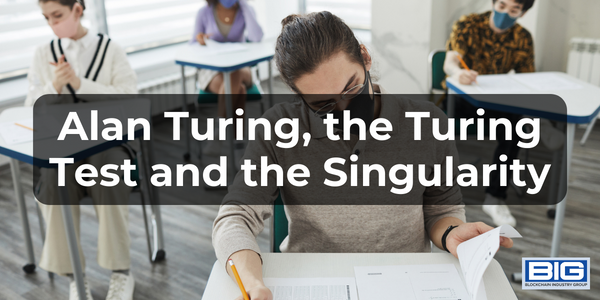
Alan Turing was a British mathematician, computer scientist, and logician who made significant contributions to the fields of theoretical and applied computer science. He is best known for his work on cracking the German Enigma code during World War II, which was instrumental in the Allied victory. Turing’s work laid the foundations for modern computer science and artificial intelligence, and he is often considered to be the father of theoretical computer science and artificial intelligence.
The Turing Test is a measure of a machine’s ability to exhibit intelligent behavior equivalent to, or indistinguishable from, that of a human. It is named after Alan Turing, who proposed the test in his 1950 paper “Computing Machinery and Intelligence.”
The test involves a human evaluator who engages in natural language conversations with another human and with a machine, and then decides which of the two they are communicating with. If the evaluator is unable to distinguish the machine from the human, the machine is said to have passed the Turing Test.
The Turing Test is not a perfect measure of intelligence, as it only evaluates a machine’s ability to exhibit intelligent behavior and does not consider other factors such as consciousness or self-awareness. However, it has become a widely accepted benchmark for evaluating the capabilities of AI systems.
The singularity is a hypothetical future event in which technological progress accelerates at such a rapid pace that it leads to unforeseen changes to human civilization. The term was popularized by mathematician and computer scientist Vernor Vinge, who argued that the singularity would occur as a result of technological advances in artificial intelligence.
According to proponents of the singularity, the exponential rate of technological progress will eventually lead to the creation of AI systems that are much more intelligent than humans, leading to a dramatic shift in the balance of power between humans and machines. Some proponents argue that the singularity could lead to a utopia, with intelligent machines solving humanity’s problems and improving our quality of life. Others are more skeptical, warning of the potential risks and dangers of such a scenario.
The Turing Test and the singularity are related in that they both deal with the question of how AI might evolve and what impact it might have on humanity. However, the Turing Test is a specific benchmark for evaluating the capabilities of AI systems, while the singularity is a more speculative and wide-ranging concept that deals with the potential long-term consequences of AI.
Top 10 Hidden Gem AI Bloggers
—
Top 10 Schools with Hidden Gem AI Programs
—
Top 5 Countries Competing for AI Dominance
In summary, Alan Turing was a groundbreaking mathematician and computer scientist who made significant contributions to the field of artificial intelligence. One of his most well-known contributions is the Turing Test, a measure of a machine’s ability to exhibit intelligent behavior equivalent to, or indistinguishable from, that of a human. The Turing Test has been influential in the development of artificial intelligence and is often used as a benchmark for evaluating the progress of AI. The concept of the singularity, which refers to the hypothetical future point at which artificial intelligence will surpass human intelligence, is also closely tied to the Turing Test and the idea of creating machines that can exhibit and exceed human-like intelligence.



